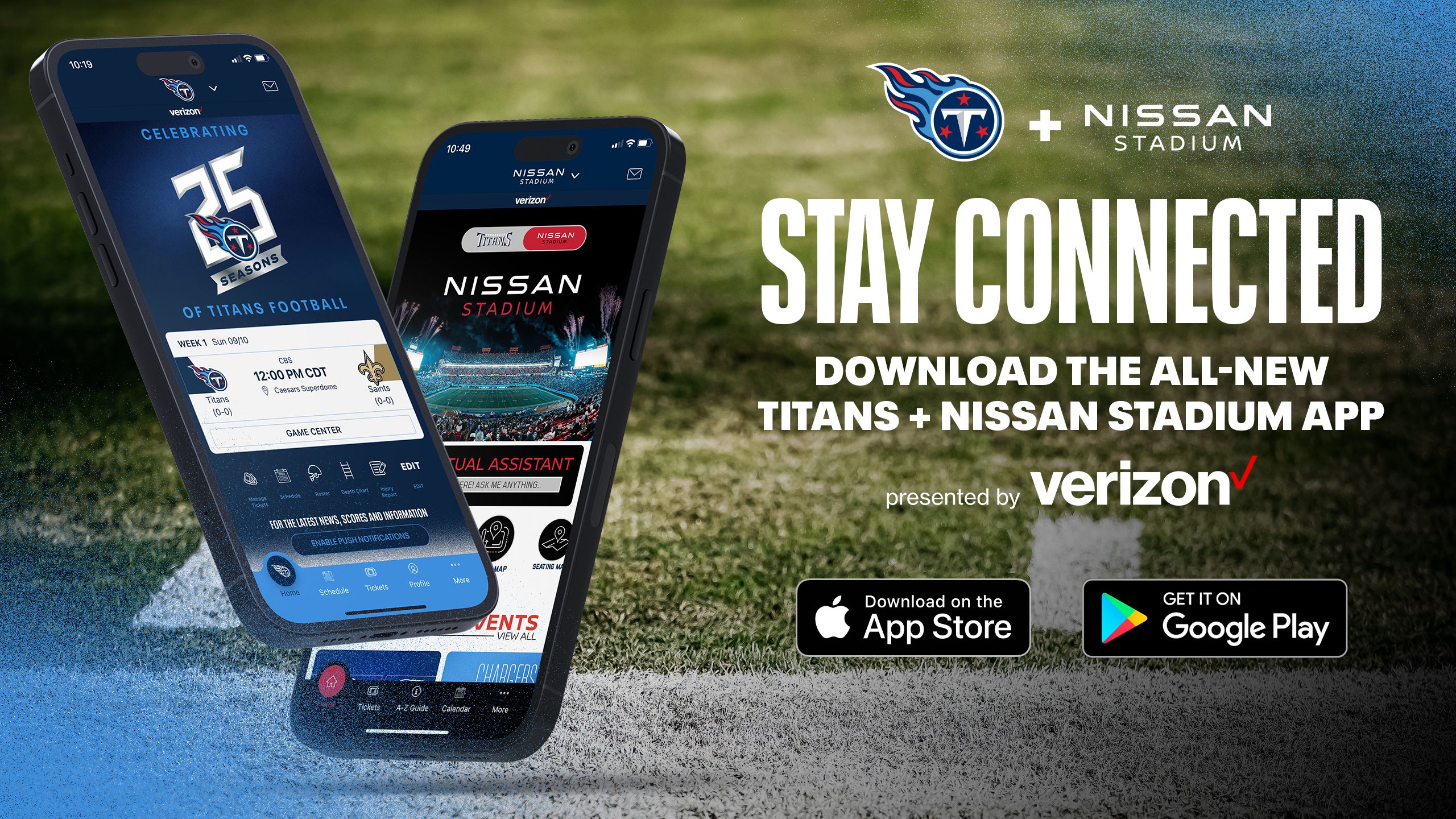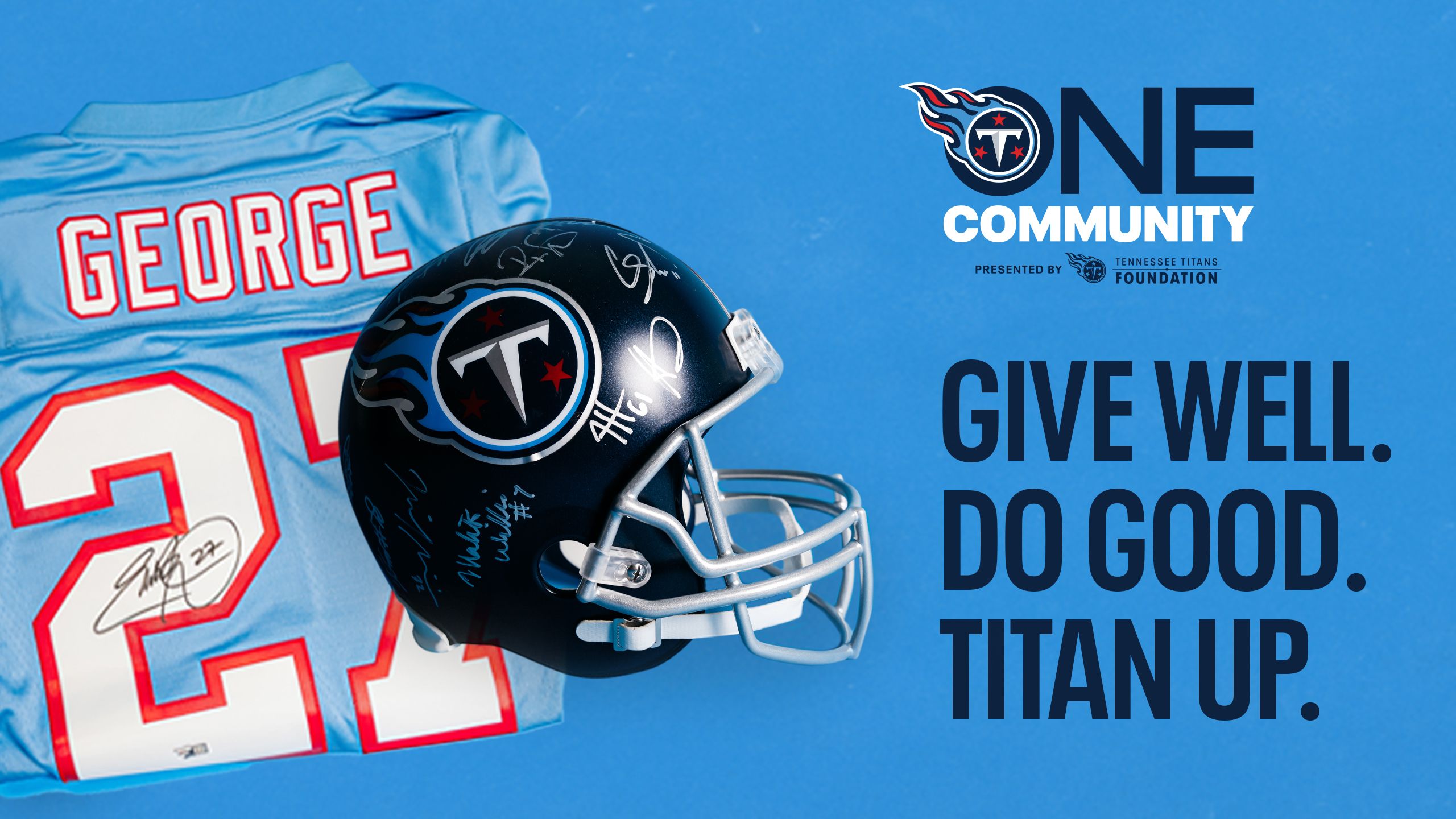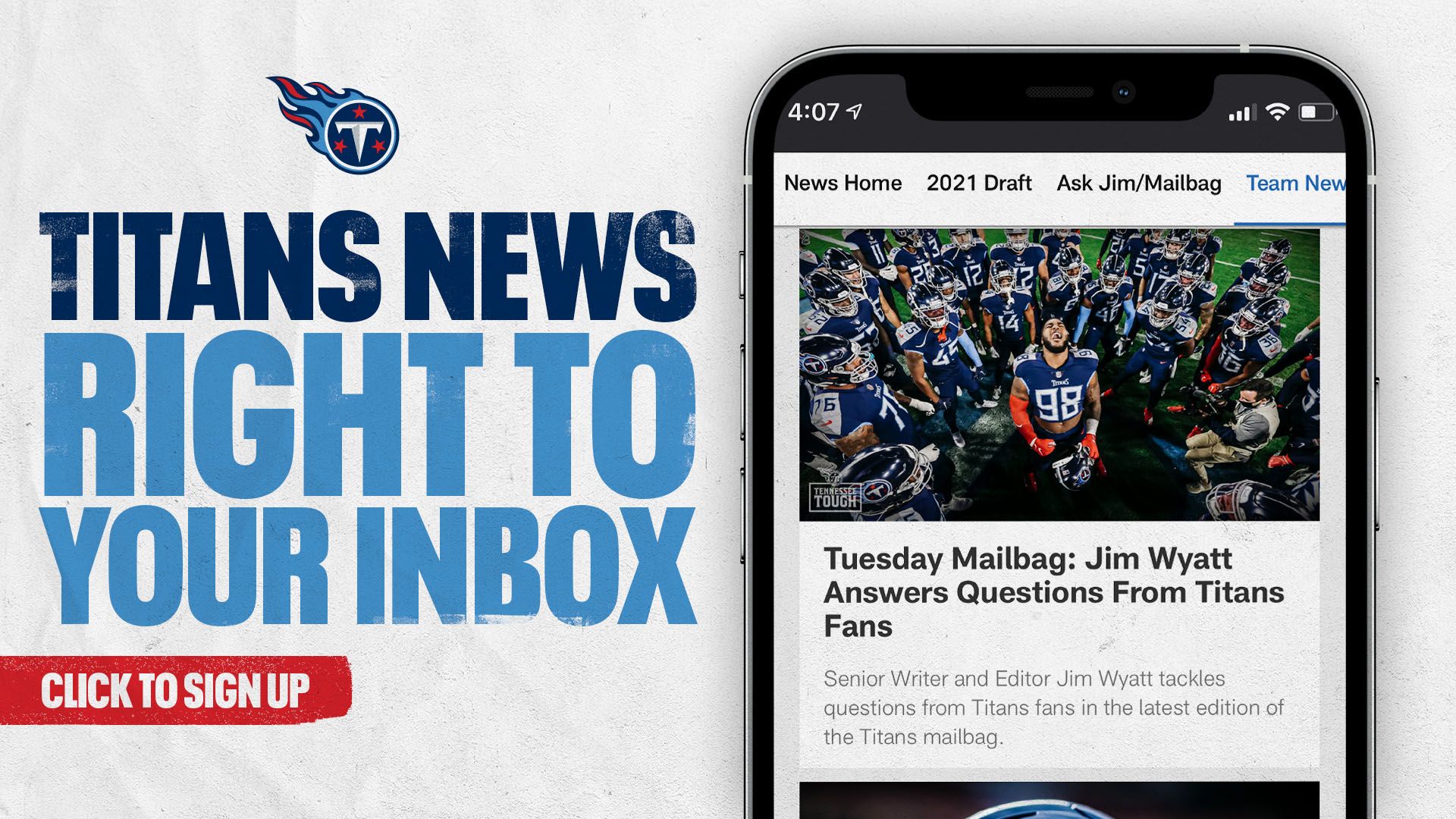**
**
Following are excerpts from Mike Munchak's Oct. 7 press conference. The above video contains the session in its entirety.
HEAD COACH MIKE MUNCHAK
(on his reaction to Moise Fokou's hit that was ruled a personal foul)
For me, probably the same as it was for me standing next to it. I thought he had a guy that was trying to make a play on both sides. They had a guy, the quarterback, trying to get a first down. Moise (Fokou) tried to make a great play for the defense, which I thought he did. It was kind of a race to the cone, it's almost like a race to pylon for the first touchdown there. That's something you hope the league looks at next year and how to adjust that when the quarterback's out of the pocket. I'm all for protection for the quarterback and all that obviously, but that's hard on the defense at that point in the game on a third down when that's so critical getting the stop there. We thought the contact came before he got out of bounds. But, again, they're deciding to protect the quarterback at all costs, so in that case, that hurt us. For the rest of the season it's not going to change, so you have to learn to adapt to the rules and be as smart as you can be and say, 'You know what, how much more do you tell a player?' You're trying to tell them to play hard and be aggressive, but if you reach the ball out for the first down you say, 'Man you shouldn't have allowed that.' But, he didn't reach the ball. Quarterbacks are smart; they know how to use the sideline. They know how the system works. If he'd reached the ball out, they probably wouldn't have called the penalty. He kept on his angle, so he used the rules the way they are, and it hurt us. I'm sure they're going to look at that on a situation where the quarterback becomes the runner. Again, we all want the same thing. We want safety for the quarterbacks. We want safety for our quarterback if he's in the same situation, so it's a fine line there. It's tough for a defensive player to tell them how to do something different in that case because you love his energy, you love the play he's trying to make. It puts them in fourth down, and all you can say is try to lead with your hands and all that stuff. All that stuff is what you try to tell them, but it's easier said than done.
(on getting better at finishing plays)
Well, I think it's what happened in Houston. I think we talked about it after the Houston game. Usually when you lose—unless you get blown out—you didn't finish something. You win two in a row, feeling a little better, you start doing some of that finishing. You finish against the Chargers on that last drive and last week, obviously, we got the turnovers and we got the big lead, so we didn't have that big ending like we had the other game. I think we had opportunities on offense again to finish the game when we had the lead. That's when we got the lead back 17-13 when we had the second-and-one or third-and-one. We had a chance with the ball in our hands down three; that's not a big deal. We had the ball and next time down six, and we still could've won the football game all three drives. I think that's where, yes, you have to finish one of those three drives on the offensive side to win.
(on being a couple plays away from 5-0)
You realize how important all the details are to the game. You're going to have close games if you are—which we think we are—a very good football team that has to continue to get better. We know that. We said that after the Houston game that we're going to have more games like this with San Diego the following week then we had one here against Kansas City at home. These are the ones that, again, if you make mistakes throughout the game or let games…we came out so flat on offense the first half then all of a sudden in three series we score 17 points. We came to life, and you wonder where that was earlier. That's what we can't have happen because all of a sudden you're in a game where you know it's going to come down to the last possession probably once it was 17-13. That's when we talk about finishing. We have to as a team on offense and defense, the defense getting a turnover maybe to put the game away or score points. Something had to happen there. Again, like Houston when we had all those opportunities. We had a lot of time and a lot of chances to make a play, and we didn't make any in any phase. The defense did a good job of holding them to field goals after the turnovers which kept us alive, but we needed something a little more dramatic I guess.
(on areas of non-execution on the goal line)
I thought the first one they beat us off the ball. They got the jump on us, and they got penetration on the first play. It kind of influenced it, so we got a no-gain on the first one. I thought the second one was a good call. We had a guy open. I think the quarterback kind of tripped a little bit on the guard that was pulling which slowed it down a little bit. Delanie (Walker) was wide open. It worked how you hoped it would. They covered it, played it like a run just like when we scored last week against the Jets. That's a different type of play, but Delanie was wide open uncovered and the ball gets batted. That's the one somehow Fitz (Ryan Fitzpatrick) caught it and ran with it. So, we thought we had the perfect play there. The third down we lined up and threw the ball. Fourth, again, I thought it was blocked well. Fourth down we should have scored.
(on Jackie Battle getting stuffed at the goal line)
He's got to get to the edge on that ball. The play wasn't designed to go up the middle. The point is there's plays that there to make. Could we have called different plays? Yes. You can always second guess calls. Should we have not even gone for it on the fourth down, you can always argue that. When the play was called, we had chances to score and they out-executed us.
(on whether he thought about putting Chris Johnson in on the goal line drive)
No. I think going in there in that package we had a runner going in there, so I think that was decided during the week. We didn't discuss it then.
(on Kenny Britt's poor performance and how he can regain confidence)
It's hard because all you can see is what you see a guy (do in practice). That's all a player can do is work hard in practice all week to try to get better for the next opportunity. Until you get in a stressful opportunity like a game—for all these players—you don't know how you're going to respond. We came out, again, like I said and had a good week of practice. We expect him to play well, and he had some drops. He wasn't the only one, but he had some big drops that we can't have.
(on Kenny Britt overcoming his mental funk)
I don't know if he's pressing so hard because he wants to make a play that the easiest catches are becoming hard catches. I don't know, it's hard to explain exactly why. Obviously, his position is to catch footballs, and he's having so much trouble in the games. He had some good opportunities. I mean, he didn't play nearly as much as he normally does in games, but he still had opportunities to help us in this game. Unfortunately, he wasn't able to do that.
(on reassessing Kenny Britt's role on offense)
I think you have to do that to each player to have the best guy, the best 11 on the field as often as you can. It's different when you're rotating players on offense and defense with what plays they're in for. Kenny (Britt) didn't start the game, Kendall (Wright) did. Kenny didn't play as much as he normally plays, but we still feel Kenny—after watching him in practice like we mentioned—has the ability to make plays just like the other receivers do. He's in the rotation when he had the opportunity. When you have your opportunity, you have to make plays; he didn't. We'll have to evaluate that and decide what's the best thing going forward.
(on Kenny Britt's role moving forward)
Well, we're going to look at what's the best way to go into the game and what's going to help us win at Seattle is going to be the most important thing. The only way someone can get out of a funk is to play. You can't decide he's never going to play again because he's dropped some balls. It's hard, it's a double-edged sword. He's dropped some balls, does that mean he's not going to get any opportunities the rest of the year? Where do you draw the line at, 'OK, you're not going to get a chance to catch anymore footballs.' That's a tough little deal there. We still feel he's a very good football player. We still feel his attitude is very positive about trying to do the right thing. We know he wants to contribute. All those things are correct, so that's why he continues to get an opportunity to play—maybe not as much as he has when he was a starter at the beginning of the season—but, he still had an opportunity yesterday to make a play or two. We have to look at that as a team, obviously. When you're 3-2 and not scoring the points you want on offense, (you need to figure) out a way to do that. We'll take all that under advisement as we go forward. No decisions have been made, and when the time comes, we'll decide what's best.
(on Kendall Wright's versatility and competitive spirit)
When we drafted him (Kendall Wright), we knew we had a special player. He loves to compete. He's hard to cover for a lot of teams when he gets in that slot. He can play outside, inside, and loves the game. You can see it when he competes. He's in and out. We're excited about the direction he's headed, and he's playing well. He's not a guy that can play 60 snaps—he can't play as much as Nate (Washington) does; that's not his deal. He uses so much energy every play that he needs a few less reps than anyone else during the game even though he's in pretty good shape. He's done a nice job. He and Nate have been pretty consistent every week.

















